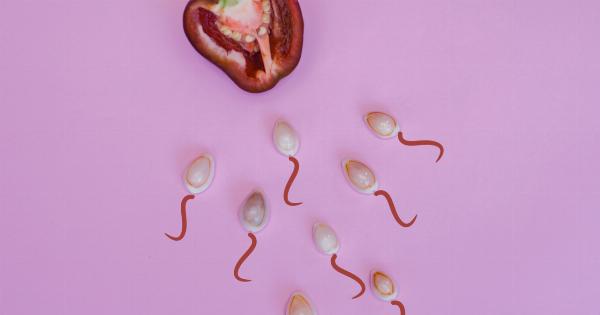Sexual duration is a topic that has long intrigued both researchers and laypersons. Some people believe that longer sexual intercourse leads to higher fertility and stronger sperm, while others claim the opposite.
So, what is the truth about the effects of sexual duration on fertility and sperm quality?.
Fertility and Sexual Duration
There is no clear consensus on the relationship between sexual duration and fertility. While some studies have suggested that longer sexual intercourse leads to higher levels of fertility, others have found no significant correlation.
One study conducted by the University of Utah found that there was no relationship between sexual duration and fertility in healthy couples.
However, another study conducted by the Icahn School of Medicine at Mount Sinai found that longer sexual intercourse did lead to higher levels of fertility in men with infertility issues.
These men had significantly higher rates of pregnancy when engaging in sexual intercourse for longer periods of time.
Overall, it seems that the effects of sexual duration on fertility vary depending on individual circumstances. For healthy couples, there may be no significant correlation.
However, for individuals with infertility issues, longer sexual intercourse may be beneficial.
Sperm Quality and Sexual Duration
Another major factor to consider when examining the effects of sexual duration is sperm quality. Sperm quality is a key indicator of male fertility and is influenced by a variety of factors, including sexual duration.
A study conducted by the University of Wisconsin-Madison found that shorter sexual intercourse led to higher sperm quality. This is because semen retention time is shortened during shorter sexual intercourse, leading to higher concentrations of sperm.
However, these findings may not be applicable to all individuals, as different people have different baseline semen volume.
On the other hand, other studies have suggested that longer sexual intercourse may lead to better sperm quality.
This is because testosterone levels can increase during prolonged sexual intercourse, leading to an increase in the production of healthy, robust sperm.
The Influence of Other Factors
When examining the effects of sexual duration on fertility and sperm quality, it is important to consider other factors that may influence these outcomes.
For instance, age, smoking, and diet can all have a significant impact on male fertility and sperm quality.
Age is one factor that is particularly important to consider. As men age, their fertility and sperm quality naturally decline. This means that the effects of sexual duration may be different for older men compared to younger men.
Smoking is another factor that can have a significant impact on male fertility and sperm quality. Studies have found that smoking can lead to lower sperm counts, poorer sperm motility, and reduced sperm morphology.
This suggests that even if sexual duration does have an impact on fertility and sperm quality, smoking may negate these effects.
Diet is also an important consideration. A healthy diet that is rich in fruits, vegetables, whole grains, and lean proteins can lead to better sperm quality and higher levels of fertility.
On the other hand, a diet high in processed foods and red meat may lead to lower sperm counts and poorer sperm quality.
Conclusion
Overall, the effects of sexual duration on fertility and sperm quality remain somewhat unclear.
Different studies have found contradictory results, and it is likely that individual circumstances play a significant role in determining the impact of sexual duration.
However, it is clear that other factors, such as age, smoking, and diet, also play a significant role in male fertility and sperm quality.
Therefore, it is important to take a holistic approach to improving fertility and sperm quality, rather than relying solely on sexual duration as a measure of success.





























